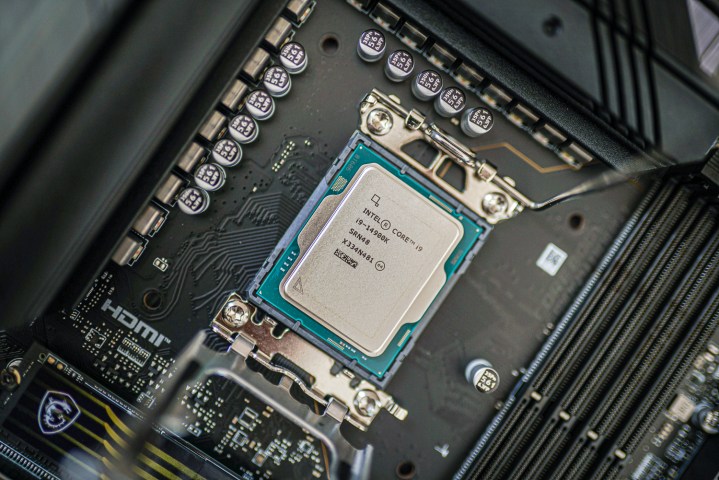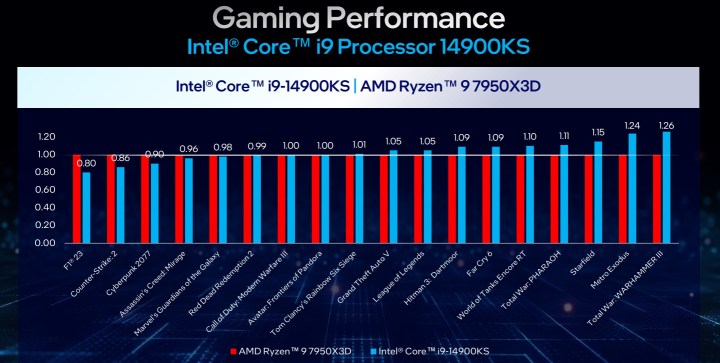
Intel just announced a new CPU that is bound to rank high among some of the best processors — the Intel Core i9-14900KS. A follow-up to the Core i9-14900K, the new CPU pushes the frequency out of the box beyond what any other chip can deliver right now, reaching a massive 6.2GHz. Intel estimates that it should deliver a sizeable upgrade over its predecessor, and we now know its specs, release date, and price.
The newly released Core i9-14900KS comes with 24 cores (eight P-cores and 16 E-cores) and 32 threads, 36MB of Intel Smart Cache, and a TDP of 150 watts. Much like the other CPUs in the Raptor Lake refresh lineup, it supports both DDR4 and DDR5 RAM, and it can handle up to 192GB of DD4-3200 MT/s memory or DDR5-5600. It can be paired with either a Z690 or a Z790 motherboard and offers 20 PCIe lanes, 16 of which are PCIe 5.0, while the rest are PCIe 4.0.
The new model doesn’t change much in terms of specs compared to the 14900 K, but it does push the clock speed higher to an impressive 6.2GHz. The Core i9-14900K sports the same core count and cache size but a smaller power draw of 125 watts.

Intel claims the new chip may be up to 15% faster than its predecessor, but that refers to gen-on-gen improvements, meaning the Core i9-13900KS. The company also shared some gaming benchmarks where the CPU faced off against AMD’s Ryzen 9 7950X3D. In about half the titles, the performance was comparable, but in some games, such as Total War: Warhammer III or Metro Exodus, Intel shoots ahead, being up to 26% and 24% faster, respectively. Comparing the Core i9-14900KS to the previous-gen chip reveals subtler improvements. The new CPU is faster, but most games show gains of three to six percent, although the Core i9-14900KS was 9% faster in Marvel’s Guardians of the Galaxy and 15% faster in Metro Exodus.
Intel also promises to offer extended Application Optimization (APO) support for this chip. This is Intel’s proprietary tech that allows dynamic processor tuning in some games, boosting performance. The processor’s performance in Metro Exodus is said to be up to 11% better with APO, and the list of supported titles has now expanded to a total of 14, which means that Intel added 12 games.
The Intel Core i9-14900KS will be available starting March 14, 2024, and it will appear both in DIY versions and in prebuilts. Some prebuilt vendors, such as Maingear, will offer special delidded versions of the chip in their builds, meaning that the integrated heat spreader will be removed, alongside the thermal paste, and then replaced with liquid metal and a premium thermal paste for better overclocking capabilities. As a standalone processor, the Core i9-14900KS will start at a recommended price of $700, which is $50 more than the Core i9-14900K.




